Vai trò của các doanh nghiệp vừa và nhỏ trong việc thúc đẩy phát triển kinh tế, tạo cơ hội việc làm và thu hẹp khoảng cách giới trong lực lượng lao động không thể bị đánh giá thấp. Hiện có hơn 70 triệu doanh nghiệp vừa và nhỏ ở ASEAN. Trong số đó, 65,5 triệu doanh nghiệp ở Indonesia, phần lớn còn lại ở Thái Lan (3,2 triệu doanh nghiệp), Malaysia (1,2 triệu doanh nghiệp), Philippines (1,1 triệu doanh nghiệp) và Việt Nam với 700.000 doanh nghiệp.
Tham gia vào thương mại quốc tế là một quá trình phức tạp đối với nhiều doanh nghiệp vừa và nhỏ. Các doanh nghiệp vừa và nhỏ có thể gặp khó khăn trong việc tự tìm kiếm người mua cuối cùng ở các thị trường nước ngoài, tuân thủ các yêu cầu xuất khẩu quốc gia và quản lý hiệu quả các mạng lưới hậu cần phức tạp hoặc có được nguồn nhân lực có tay nghề để thực hiện điều đó. Tham gia vào thương mại thông qua các chuỗi giá trị toàn cầu (GVC) đã thành lập thông qua mối quan hệ với các bên tham gia có trụ sở tại địa phương trong mạng lưới thương mại toàn cầu có thể cung cấp cho họ một điểm vào để tham gia vào các hoạt động thương mại quốc tế.
Nghiên cứu của OECD về Đông Nam Á đã phát hiện ra rằng 23% các doanh nghiệp vừa và nhỏ ASEAN nhập khẩu (trực tiếp hoặc gián tiếp) và ít hơn 12% xuất khẩu (trực tiếp hoặc gián tiếp). Điều này nhấn mạnh rằng các doanh nghiệp vừa và nhỏ không được đại diện đầy đủ trong các GVC so với các công ty lớn hơn, với 58% nhập khẩu và 54% xuất khẩu. Hơn nữa, nhiều trong số các công ty lớn này là doanh nghiệp nước ngoài (30% là nhà nhập khẩu lớn và 23% là nhà xuất khẩu lớn), cho thấy sự chênh lệch. Về mặt các doanh nghiệp vừa và nhỏ nhập khẩu và xuất khẩu, chỉ có 4% và 2% trong số họ là doanh nghiệp nước ngoài, điều này có thể giải thích cho sự tham gia thấp hơn của họ vào các GVC.
Do đó, việc thiết lập mối liên kết giữa các doanh nghiệp vừa và nhỏ và các tập đoàn xuyên quốc gia (TNC) là rất quan trọng để tích hợp các doanh nghiệp vừa và nhỏ vào các GVC. Điều cần thiết là phải thúc đẩy một môi trường hỗ trợ cho đầu tư trực tiếp nước ngoài (FDI), vì FDI đóng vai trò quan trọng trong việc tạo ra mối liên kết chặt chẽ giữa các doanh nghiệp vừa và nhỏ (SME) và các TNC. Nghiên cứu cho thấy mối quan hệ do FDI tạo điều kiện với các công ty nước ngoài có thể tăng cường đáng kể sự tham gia của các doanh nghiệp vừa và nhỏ vào các GVC thông qua việc tiếp cận các mạng lưới và công nghệ toàn cầu. Điều này có thể đạt được thông qua nhiều nỗ lực hợp tác, bao gồm quan hệ đối tác chiến lược, thỏa thuận hợp đồng và cấp phép công nghệ, cùng với các nỗ lực khác.
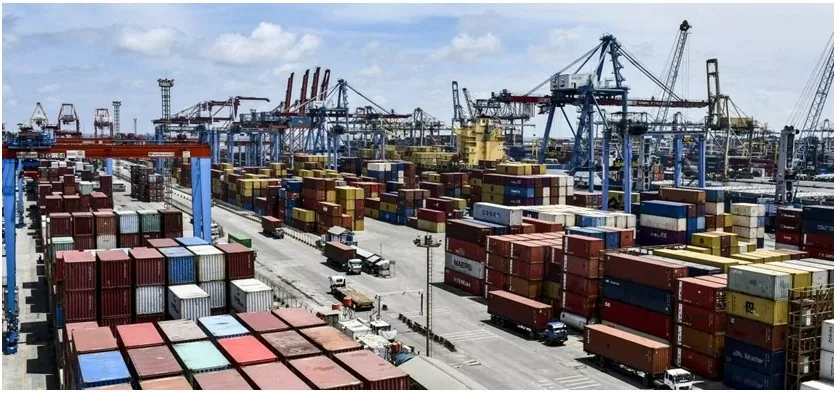 |
| Ảnh minh họa |
Thách thức của SME trong các chuỗi giá trị toàn cầu
Các yếu tố nội bộ như khả năng cạnh tranh, nguồn nhân lực và tài chính rất quan trọng để các doanh nghiệp vừa và nhỏ tham gia vào các GVC. Nghiên cứu của OECD cho thấy các công ty có năng suất cao với tiềm năng tăng trưởng dài hạn có xu hướng tham gia vào các GVC. Việc cải thiện khả năng cạnh tranh của các doanh nghiệp vừa và nhỏ đòi hỏi sự hỗ trợ có mục tiêu như nâng cấp công nghệ và đào tạo chuyên sâu. Việc tiếp cận công nghệ tiên tiến giúp các doanh nghiệp vừa và nhỏ hợp lý hóa hoạt động và đáp ứng các tiêu chuẩn quốc tế, trong khi đào tạo về quản lý chuỗi cung ứng và các chương trình khác nâng cao khả năng sẵn sàng xuất khẩu giúp họ trang bị cho mình những giải pháp trước thách thức của thương mại toàn cầu. Ngoài ra, quan hệ đối tác với các công ty lớn hơn có thể mang lại nhiều cơ hội học tập hơn thông qua chuyên môn và nguồn lực được chia sẻ.
Các yếu tố bên ngoài đặt ra những thách thức đáng kể đối với sự tham gia của các doanh nghiệp vừa và nhỏ vào các GVC. Trong nước, các doanh nghiệp vừa và nhỏ phải đối mặt với những trở ngại như khả năng tiếp cận tài chính hạn chế, cơ sở hạ tầng kém, hệ thống hậu cần không đầy đủ, kết nối internet băng thông rộng không đáng tin cậy, đặc biệt là ở các vùng nông thôn và thiếu kỹ năng số. Những thách thức này có thể hạn chế năng lực hoạt động và tiềm năng tăng trưởng của họ. Các sáng kiến chính sách công sẽ thúc đẩy phát triển toàn diện và lưu ý đến những thách thức mà các doanh nghiệp vừa và nhỏ phải đối mặt.
Những hạn chế về tài chính vẫn là trở ngại lớn đối với sự phát triển của các doanh nghiệp vừa và nhỏ, đặc biệt là đối với các công ty khởi nghiệp. Ngân hàng truyền thống, thông qua các khoản vay và chương trình tín dụng, vẫn là nguồn tài chính chủ yếu trong khu vực. Tuy nhiên, sự xuất hiện của công nghệ tài chính (FinTech) đã bắt đầu cải thiện khả năng tiếp cận tài chính của các doanh nghiệp vừa và nhỏ. Điều quan trọng là phải liên tục xem xét các chính sách để tạo ra một môi trường thuận lợi cho FinTech và khám phá các lựa chọn tài chính thay thế như vốn đầu tư mạo hiểm, tài trợ thiên thần, vốn chủ sở hữu công cộng, cho vay ngang hàng (P2P) và huy động vốn cộng đồng bằng vốn chủ sở hữu. Các biện pháp này có thể hỗ trợ các nhu cầu tài chính đa dạng của các doanh nghiệp vừa và nhỏ, tăng cường khả năng tiếp cận tài chính của họ và do đó tạo nền tảng cho tính bền vững hơn cho các doanh nghiệp của họ.
Số hóa cũng đóng vai trò quan trọng trong việc cải thiện khả năng cạnh tranh của các doanh nghiệp vừa và nhỏ và tạo điều kiện thuận lợi cho việc hội nhập của họ vào các chuỗi giá trị toàn cầu. Chỉ số chính sách của các doanh nghiệp vừa và nhỏ năm 2018 cho thấy các công ty xuất khẩu thường tiên tiến hơn trong việc áp dụng công nghệ số, giúp họ quản lý hậu cần và tuân thủ các tiêu chuẩn quốc tế hiệu quả hơn. Ngược lại, các doanh nghiệp vừa và nhỏ không xuất khẩu thường sử dụng công nghệ số chủ yếu để tăng khả năng hiển thị trên thị trường. Có nhu cầu cấp thiết phải mở rộng hiểu biết và sử dụng các công nghệ số tiên tiến trong các doanh nghiệp vừa và nhỏ để giúp cân bằng sân chơi cho việc tham gia vào các chuỗi giá trị toàn cầu.
Ngoài ra, việc thiếu khả năng tiếp cận thông tin về thị trường quốc tế tiếp tục cản trở sự tham gia của các doanh nghiệp vừa và nhỏ vào các chuỗi giá trị toàn cầu. Mặc dù có các chính sách và chiến lược quốc gia để hỗ trợ xuất khẩu của các doanh nghiệp vừa và nhỏ - một thành phần quan trọng của việc tham gia vào các chuỗi giá trị toàn cầu - nhưng nhận thức về các chương trình này trong các doanh nghiệp vừa và nhỏ vẫn còn thấp. Việc nâng cao nhận thức và tạo điều kiện thuận lợi cho việc tiếp cận các cơ chế hỗ trợ này là điều cần thiết để đảm bảo rằng các doanh nghiệp vừa và nhỏ có thể tận dụng hiệu quả các cơ hội.
ASEAN hỗ trợ và định hướng cho các doanh nghiệp vừa và nhỏ
ASEAN với tư cách là một tổ chức khu vực tiếp tục giải quyết những thách thức của việc hội nhập các doanh nghiệp vừa và nhỏ vào các chuỗi giá trị toàn cầu, với một sáng kiến chính là Kế hoạch hành động chiến lược ASEAN về phát triển các doanh nghiệp vừa và nhỏ 2016-2025, thiết lập một nền tảng để thảo luận về những thách thức và cơ hội của các doanh nghiệp vừa và nhỏ, cung cấp cho các doanh nghiệp vừa và nhỏ thông tin tiếp cận thị trường tốt hơn thông qua việc kết nối doanh nghiệp, thúc đẩy quan hệ đối tác với các công ty đa quốc gia và áp dụng các tiêu chuẩn chất lượng quốc tế.
Năm 2018, Chỉ số chính sách của ASEAN dành cho các doanh nghiệp vừa và nhỏ đã được thành lập để theo dõi và đánh giá hiệu quả của các chính sách hỗ trợ các doanh nghiệp vừa và nhỏ. Các hoạt động chuẩn bị đang được tiến hành cho Chỉ số chính sách của ASEAN dành cho các doanh nghiệp vừa và nhỏ 2024, nhằm phản ánh những thay đổi gần đây và các xu hướng mới nổi trong lĩnh vực doanh nghiệp vừa và nhỏ. Chỉ số này sẽ đóng vai trò là một công cụ quan trọng để các nhà hoạch định chính sách thiết kế và triển khai tốt hơn các chính sách có liên quan nhằm đáp ứng nhu cầu ngày càng thay đổi của các doanh nghiệp vừa và nhỏ.
Trong tương lai, điều cần thiết là phải hiểu toàn diện về những thách thức mà các doanh nghiệp vừa và nhỏ phải đối mặt khi tham gia vào các chuỗi giá trị toàn cầu. Một cách để tạo điều kiện thuận lợi cho việc này là thu thập dữ liệu đáng tin cậy. Hiện nay, hầu hết các nghiên cứu về sự tham gia của SME đều dựa trên sự kết hợp giữa các cuộc khảo sát doanh nghiệp, nghiên cứu tình huống và dữ liệu hành chính, thường gặp phải những hạn chế như phạm vi quốc gia không đầy đủ, phân tích chuỗi thời gian không nhất quán và các định nghĩa khác nhau về SME trong và giữa các khu vực. Với dữ liệu tốt hơn, các chính sách có mục tiêu hơn, dựa trên bằng chứng có thể được triển khai để tập trung vào việc cải thiện khả năng tiếp cận tài chính, hợp lý hóa các thủ tục xuất khẩu, hỗ trợ nâng cấp công nghệ và nâng cao nhận thức của SME về các chương trình hỗ trợ xuất nhập khẩu.
Ở cấp độ khu vực, ASEAN đóng vai trò quan trọng trong việc tạo điều kiện trao đổi các thông lệ tốt nhất và cập nhật quy định, cũng như thảo luận về các xu hướng hoặc thách thức mà SME phải đối mặt có thể cung cấp thông tin cho các sáng kiến khu vực. ASEAN cũng là một bên đóng góp quan trọng vào việc thu thập dữ liệu liên quan đến SME. Ngoài ra, các sáng kiến khu vực nhằm nâng cao khả năng cạnh tranh của SME bao gồm việc tạo điều kiện cho các sự kiện kết nối doanh nghiệp và các chương trình xây dựng năng lực theo chủ đề, đây là những yếu tố cần thiết để tăng cơ hội cho SME tham gia vào GVC.
Việc theo dõi, đánh giá và điều chỉnh liên tục các chính sách SME ở cấp quốc gia vẫn là điều cần thiết, cũng như việc tăng cường hợp tác khu vực. Việc điều chỉnh các chính sách trong nước phù hợp với diễn biến khu vực sẽ giúp các doanh nghiệp vừa và nhỏ của ASEAN tận dụng tối đa các cơ hội do hội nhập kinh tế khu vực và toàn cầu mang lại, qua đó thúc đẩy tăng trưởng bền vững và khả năng phục hồi lớn hơn của khu vực trước những thách thức toàn cầu .
Nguồn: https://congthuong.vn/asean-thuc-day-chien-luoc-tham-gia-chuoi-gia-tri-toan-cau-cua-cac-doanh-nghiep-vua-va-nho-sme-335679.html








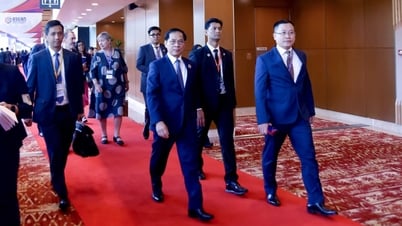


















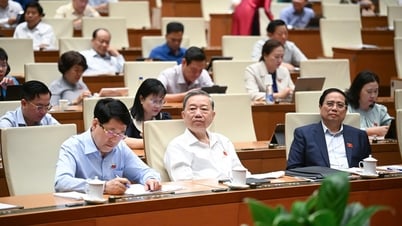






























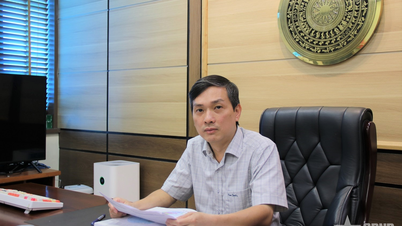









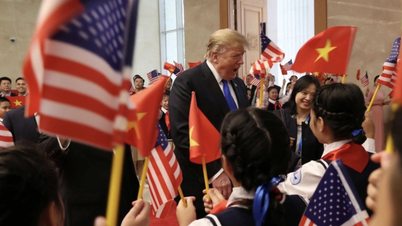




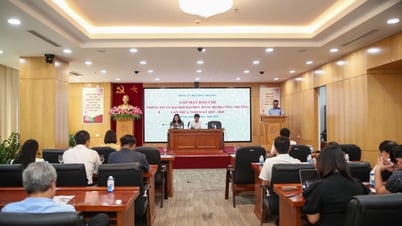




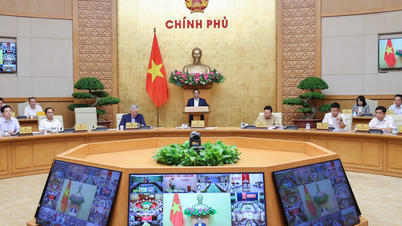




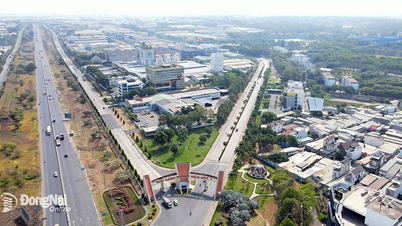

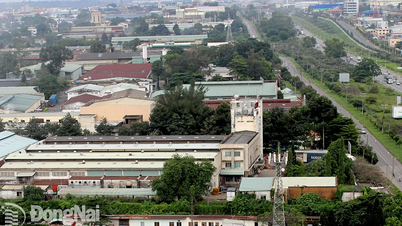

















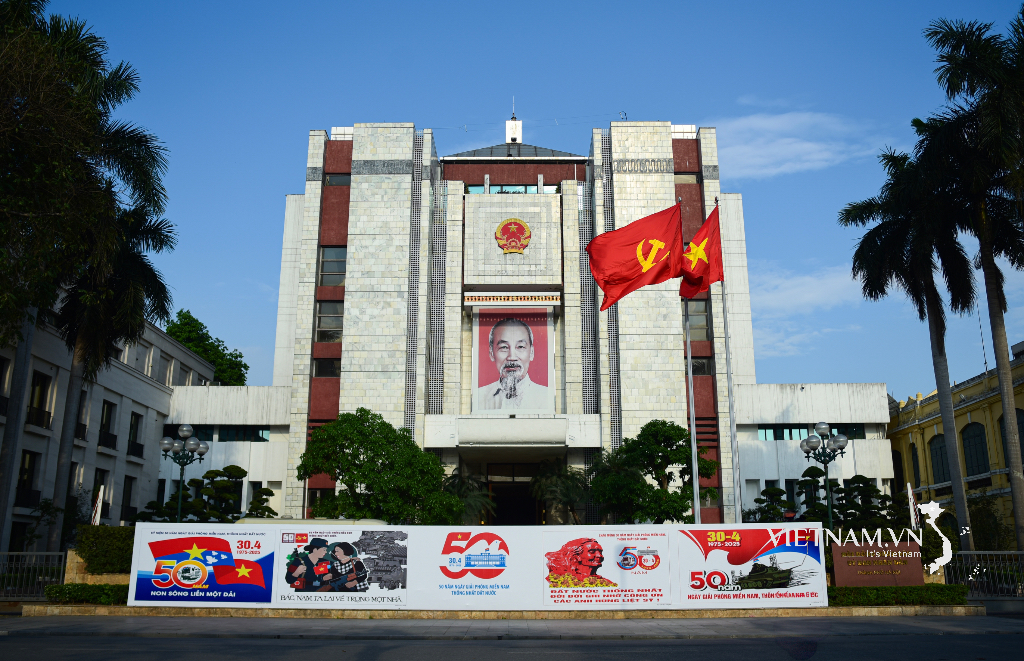


Bình luận (0)